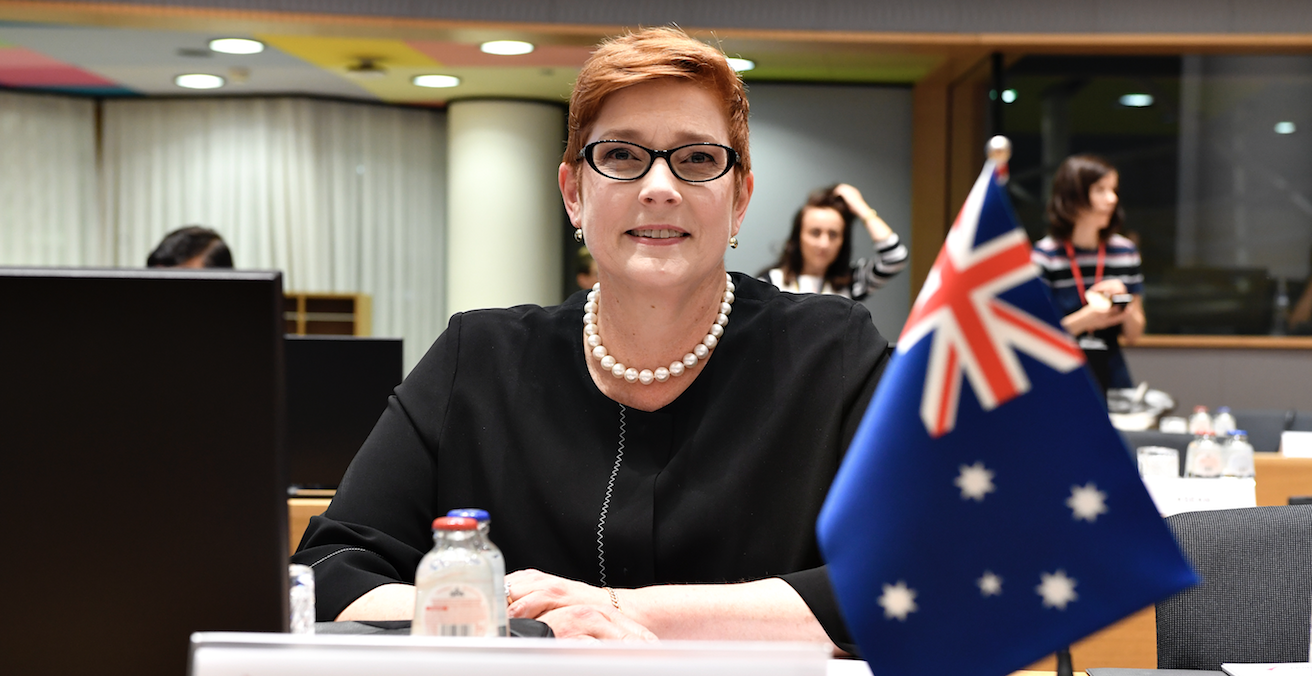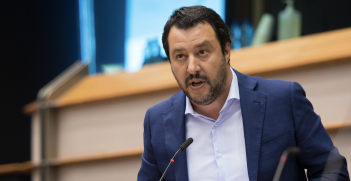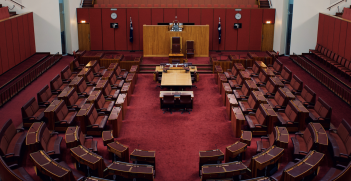Beyond Brexit: How Can Australia Better Engage Europe?

Australia’s engagement with Europe has traditionally been dominated by its relationship with the United Kingdom. After Brexit, Australia should look to forge stronger ties with Brussels and the continent.
The uncertainty of Brexit dominates nearly all the coverage of Europe in Australia. This is particularly the case in the business pages. And if it’s not Brexit woes, it’s the protectionism of European agriculture or the imposition of “geographical indicators” that prevent Australian producers calling their product Champagne or feta cheese or Parma ham, even if it’s world class.
It is also the case that popular knowledge of Australia in Europe is very limited. Despite the fact we participate in Eurovision – in fact, Israel and Australia are the only “non-European” nations – and we are regular visitors to the continent (a little bit too regular say some European residents of tourist towns that are frequented by rampaging young Aussies). Much of our contact, in fact, is family orientated given the large number of Australians whose forebears were part of the massive post World War II immigration program.
The “knowledge gap” between Europe and Australia has had consequences for business links as well. For instance, if you look at the recent Australian Bureau of Statistics (ABS) numbers of Australian businesses exporting goods to Europe, the United Kingdom dominates. It is well ahead of Germany, France, the Netherlands and Italy. According to the ABS, nearly 6,000 Australian exporters sell goods to the UK. This is near twice those who sell to Germany (3,040) and well ahead of the Netherlands (1,764), France (1,581) and Italy (552). The UK has always been in the Top 20 export destinations for Australia, a list otherwise dominated by Asia. Why is this so?
Firstly, it’s because of the historical ties between Australia and the UK. After all, European settlement in Australia was based on the British Empire’s need to set up a penal colony in New South Wales after the loss of the American colonies. Trade from convict times was dominated by the needs of the British Empire and its trade routes (trade even saved the penal colony in its early days) and the UK dominated Australian trade for almost two centuries. It was not until 1966 that Japan took over from the UK as Australia’s number one trading partner, before Britain focussed on Brussels and Australia looked north to the emergence of the Asian century.
Secondly, it’s the English Language. Australia’s business interests – except for large shipments of bulk commodities – tend to follow the Anglosphere. Not just the UK compared to continental Europe, but hubs like Singapore, Hong Kong, Dubai and the English-speaking parts of Africa and the Americas tend to be the most popular places for Australians to do business.
Thirdly, until the global financial crisis, the UK’s strong economic performance attracted Australian businesses and prompted the (wise, as it turned out) decision for the UK not to join the eurozone.
Fourthly, Australia has always objected to the protectionist impulses of Brussels trade policy in agriculture (and the United States for that matter) and that has often overshadowed the sunnier aspects of the relationship.
So, what can be done to get European-Australian economic relations on the right track?
The Australia-EU free trade agreement (FTA) is a good start, which is progressing alongside the Australia-UK FTA and may even get signed before London gets its Brexit act together. The ambitious pact hopes to open access to markets, to streamline regulations, to develop high-quality rules and standards and to fast track the digital economy.
This is promising as survey evidence suggests Australian exporters are quite keen on an Australia-EU FTA and see Europe as a promising market. According to DHL, Europe tops the list as the most desirable new territory for 17 percent of exporters. But the UK is also in the running at 11 percent – this is just behind Southeast Asia on 15 percent and tied with Indonesia and Japan who are also on 11 percent.
A good example of this renewed interest in Europe is the energised relations between Australia and France. It’s partially based on Australia’s A$50 billion strategic partnership with France to build 12 state-of-the-art submarines in South Australia. This will be very important for developing capacity and skills in advanced manufacturing in Adelaide after the withdrawal of the car manufacturers. And it’s more than a one-off business deal. A strategic partnership for 50 years has been signed between South Australia and Bretagne in France for co-operation on science, technology, research and development, and exchange of people.
As well as trade and defence deals, there’s also soft diplomacy which both Australia and Europe could probably do more of. The EU-Australia Leadership Forum is one such example that brings together industry leaders from both continents together in Sydney and, more recently, in Brussels.
So, what’s the future of EU-Australia relations? It should be remembered that as well as Brexit, Brussels has its additional battles with Hungary, Italy and Poland. Amidst such concerns, Australia may seem a long way away. But with the rise of China, Russia, anti-Semitism and instability in the Middle East, and the rise of populism and volatility in the Trump White House, Europe should treat Australia as an important and stable partner in an uncertain and dangerous world.
And that way Australia, in turn, can have a little less Europhobia and a bit more Eurovision.
The authors attended the EU-Australia Leadership Forum in Brussels on the 18-22 November 2018.
Natanael Bloch is a strategic communications and public affairs professional with ten-years’ experience in both France and Australia.
Tim Harcourt is the JW Nevile fellow in economics at UNSW, Sydney and host of The Airport Economist.
This article is published under a Creative Commons License and may be republished with attribution.





